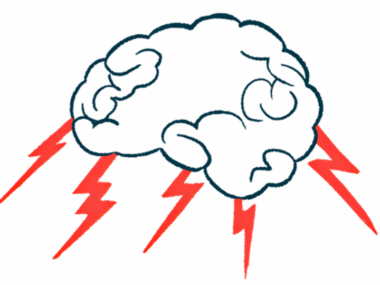Blocking activin A protein prevents dyskinesia tied to levodopa in mice
Lab study suggests drug's long-term use triggers 'motor memory' in brain
Written by |

Blocking the activity of a protein called activin A was shown to prevent the development of levodopa-induced dyskinesia in a mouse model of Parkinson’s disease in a recent study.
“By prohibiting the protein from functioning, we were able to halt the development of dyskinesia symptoms in the mouse models,” Karen Jaunarajs, PhD, an assistant professor of neurology at the University of Alabama at Birmingham (UAB) and senior author of the study, said in a university press release.
The study, “Differential Activation States of Direct Pathway Striatal Output Neurons during l-DOPA-Induced Dyskinesia Development,” was published in The Journal of Neuroscience.
Levodopa use seen to affect gene providing for protein’s production
Parkinson’s is caused by the death and degeneration of brain cells that are responsible for making the signaling molecule dopamine. Low dopamine activity ultimately drives most disease symptoms.
Levodopa is a mainstay Parkinson’s treatment that basically works by giving the brain more raw materials with which to make dopamine. Levodopa can potently ease Parkinson’s motor symptoms, but long-term use almost always leads to the side effect of dyskinesia — uncontrolled, jerky movements that can cause substantial problems in day-to-day life and is a major limiting factor in levodopa’s use.
It’s not known exactly why long-term levodopa treatment triggers the development of dyskinesia. In this study, scientists investigated the underlying mechanisms using a mouse model of levodopa-induced dyskinesia. The researchers specifically evaluated how levodopa affects cells in the striatum, which is part of the brain that helps control movement and is heavily impacted by Parkinson’s.
They found that certain nerve cells in the striatum — specifically, a subset of cells called D1-MSNs (short for D1 receptor-expressing medium spiny output neurons) — undergo changes in genetic activity in response to chronic levodopa stimulation, including increased activity of the gene that provides instructions for making the activin A protein.
These genetic changes are involved in forming new connections between nerve cells, and, according to the researchers, the alterations are “similar to processes underlying hippocampal learning and memory.” (The hippocampus, a different brain region, has a central role in long-term memory.)
“We found that some of these D1-MSNs were expressing genes indicating that they were being activated by L-DOPA [levodopa] and genes that were necessary for creating new connections with other cells. This was very similar to what happens when you learn something new and recall that memory,” said David Figge, MD, PhD, an assistant professor in the department of pathology at UAB and the study’s lead author.
“It seemed like the brain was forming a motor memory, and each time a patient received L-DOPA treatment, this memory then recalled upon every subsequent L-DOPA exposure,” Jaunarajs added.
Limiting dyskinesia by erasing memory of motor response to levodopa
Based on this finding, the researchers wondered whether they could stop this abnormal “motor memory” from occurring to prevent levodopa-induced dyskinesia from developing.
“Instead of looking for a completely alternative treatment, we wanted to see if there was a way to prevent dyskinesia from developing in the first place,” Figge said. “If dyskinesia does not occur, then patients could potentially stay on their Parkinson’s treatment for longer.”
When they treated mice with a compound that blocked the activity of the activin A protein, the researchers found that the mice developed less dyskinesia. The compound was “effectively erasing the brain’s memory of the motor response to L-DOPA,” Jaunarajs said.
These data indicate “that activin signaling may play an essential role” in levodopa-induced dyskinesia, the researchers said, suggesting that targeting this protein may be a viable strategy to reduce or prevent this medication side effect.



